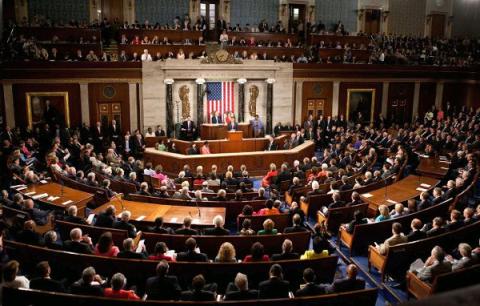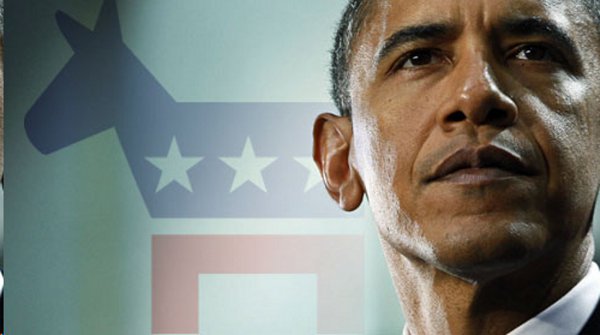A Return to the Political Center

From PunditWire.com:
The center is holding. Despite the enormous stresses of responding to a deep, painful recession while awkwardly implementing a long-sought national health insurance program, America’s politics are moving back toward the middle, fueling frustrated responses from fringe elements who see opportunities for fundamental change evaporating.
The economy is coming back. Threats of a government shutdown – or even default – seem to be receding. The lack of a country with an economic policy that’s working better inhibits the debate about what comes next because there’s no seemingly successful role model to emulate.
Hysteria about imperfect execution of an incredibly complex – and thus little understood – health reform law is fading as the focus shifts from reversing it to easing implementation. Even conservative Republican governors embrace expanding insurance for the poor. Energy policy has quietly undergone a massive shift as America reduces its dependence on imported oil and responds to the threat of climate change.
This return to business as usual is not good news for reformers reliant on an uncomfortable electorate receptive to their message that the system doesn’t work. Political venture capitalists continue to fund the Tea Party, but there’s every reason to believe that the next election will result in a more centrist Congress. Radicals don’t run well in general elections.
This regression to the political mean is hardly surprising in the context of American political history. Nor is the reaction of those on the fringes or the difficulty in coming up with a compelling rhetorical response. The politics of passion have an inherent drama that’s absent in governing. That’s why the poetry of politics so often found in the Congressional Record eclipses the dry prose of the Federal Register.
Hence the predictable fuss when some observers at Third Way – a think tank linked to the Democratic center – warned that the elections of Mayor Bill de Blasio in New York and Sen. Elizabeth Warren in Massachusetts should not be seen as signals that the national party should move left. Those who argued that the party could win the White House with such a shift were as wrong – and for the same reasons – as those in the Tea Party who argued that closing the government and defaulting on the debt in their quest to repeal Obamacare, their essay argued. The demand for radical change was both modest and declining.

This is a disturbing message for the Occupy Wall Street bunch who believes that the quest for needed financial regulation has been stalled, if not reversed. It is equally uncomfortable to those who want to shrink the size of government. Both sides want to go back to the future — liberal Democrats want a return to the income equality last seen prior to the creation of the Great Society while conservatives dream of a return to pre-Great Society small-town America.
Each fringe presents a historic narrative centered on a past president represented as too principled to cater to the center. For the liberals, it’s Kennedy, author of the Profiles in Courage, whose legislative record is underwhelming. For the conservatives, it is Ronald Reagan who comfortably signed a tax increase exceeding any in the past.
Clearly both were influenced by factions within their parties more dogmatic than they were, but both moved to the center. That’s what always happens. And it’s happening now.
Author Bio:
For 16 years, Jim Jaffe worked for House Democrats who served on the Ways and Means Committee, apprenticing with Representatives Green, Gibbons and Gephardt before working for Chairman Dan Rostenkowski.






























































































































































































































































































































